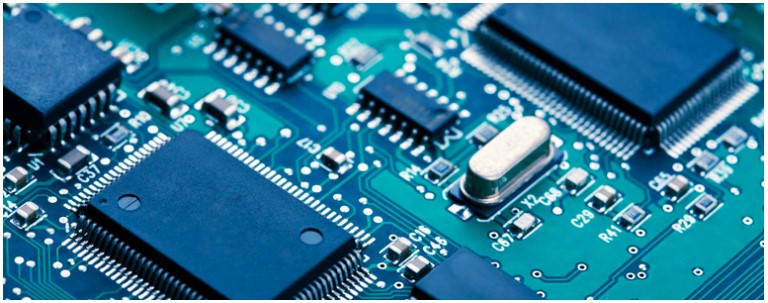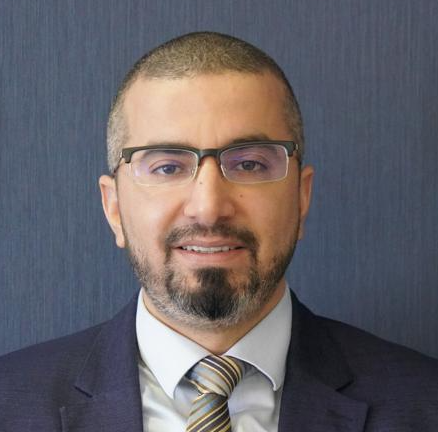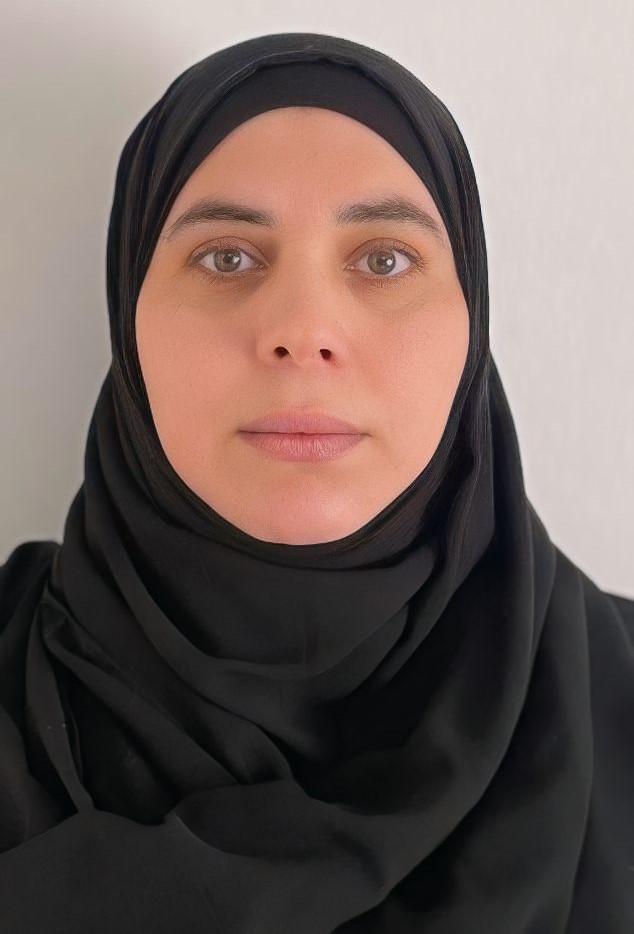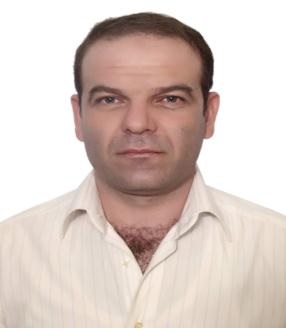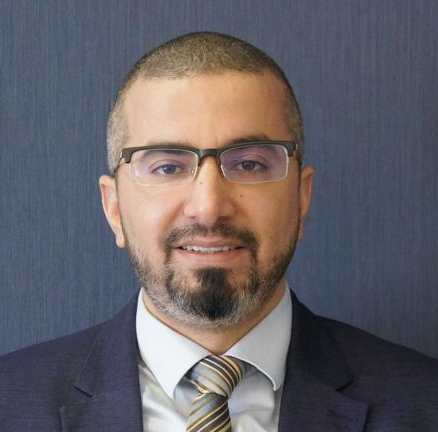
Welcome Message
I am delighted to welcome you to our digital portal, representing the heart of computing education in Tabuk, KSA. As the A/Dean, I am proud to present our comprehensive programs in computer science, information technology, and computer engineering, with specializations in AI, data science, and cybersecurity.
Our offerings extend to postgraduate degrees, including a Master of Science in Computer Science and a Master of Science in Computer Engineering. These programs are designed to blend theoretical knowledge with practical skills, preparing students for the dynamic tech industry.
At the College of Computing, we are a community of innovators and problem- solvers, supported by dedicated faculty who provide hands-on learning experiences. Our strong ties with industry leaders in Saudi Arabia facilitate transformative projects in cutting-edge fields.
Choosing our College means joining a vibrant community committed to academic excellence, high-tech resources, and forward-thinking philosophy. I invite prospective students, alumni, and community members to explore our offerings through this portal.
For more information, please get in touch. Your journey in computing begins here, and I look forward to welcoming you to our campus soon.
Warm regards,
Mohammad A. Mezher, Ph.D
A/Dean of Computing College

Vision
To become a prominent computing college in the Tabuk region and the Kingdom offering undergraduate and graduate programs capable of equipping students with professional computing aptitudes, advanced research skills, and high ethics.
Mission
The College of Computing at Fahad Bin Sultan University is committed to excellence in computing education, aligning with national and international standards. The college integrates advanced technology and diverse pedagogical methods to enhance scientific research and creative problem-solving. The college aims to develop graduates proficient in computing and dedicated to community service and global betterment. The college strives to foster continuous learning and leadership in the students, preparing them to excel in a dynamic digital landscape. The college focuses on efficiently utilizing and diversifying educational resources to contribute to the community through technology.
Core Value
- Reinforcement of national identity and cultural authenticity
- The uncompromising pursuit of quality educational services to students in ways that cognitive skills, cultivate personality and help the development of character
- Integrity and adherence to ethical behavior in all ways at all levels
- Life-long learning and investment in self-renewal
- Critical thinking and board exposure to major global currents
- Community spirit and commitment to social service
Objectives
- Provide students with basic foundations in computing to enable them to identify, formulate, and solve computing problems,
- Equip students with basic principles in software and hardware and the necessary tools to be able to implement computing solutions,
- Enable students to communicate effectively, think critically, and be life-long learners,
- Instill in students an appreciation of the ethical, social and professional issues in an increasingly diverse and technological society, and
- Prepare students to undertake higher studies in computing or related fields.
Bachelor Degree Offered
The Computing College grants the following degrees
▪ Bachelor of Science Computer Science (BSC)
▪ Bachelor of Science in Information Technology (BIT)
▪ Bachelor of Science in Computer Engineering (BCEN)
▪ Bachelor of Data Science (BDS)
▪ Bachelor of Cybersecurity (BCS)
▪ Bachelor of Artificial Intelligence and Machine Learning (BAI)
The bachelor's degree programs allow eligible students to develop enhanced knowledge in these areas through a balanced curriculum of required/elective intermediate and advanced courses in specific computing concentrations. The courses offered in the bachelor program provide students with more in-depth knowledge in their chosen track area.
Master Degrees Offered
The Computing College grants the following degrees
▪ Master of Science in Computer Science
▪ Master of Science in Computer Engineering
The Master's degree programs allow eligible students to develop enhanced knowledge in these areas through a balanced curriculum of required/elective intermediate and advanced courses in specific computing concentrations. The courses offered in the bachelor program provide students with more in-depth knowledge in their chosen track area.
Admission Requirements
Admission of students to the BSC, BIT and BCEN programs at the College of Computing is based on the General University admission requirements in addition to specific criteria set by the College of Computing. All direct admissions are decided by the University Admissions Committee.
University Requirements
To complete a bachelor's degree program in the College of Computing, 37 credits of general education are required: 34 compulsory and 3 free electives, as follows:
A) The compulsory courses:
|
Course Code |
Course Title |
Pre-Requisites |
Credits |
|
ARAB 101 |
Basic Academic Arabic |
|
3 |
|
ARAB 201 |
Advanced Academic Arabic |
ARAB 101 |
3 |
|
ENG 100 |
General English |
|
3 |
|
ENGL 101 |
Basic Academic English I |
|
3 |
|
ENGL 102 |
Basic Academic English II |
ENGL 101 |
3 |
|
ENGL 203 |
Advanced Academic English I |
ENGL 102 |
3 |
|
ENGL 206 |
Technical Writing |
ENGL 102 |
3 |
|
MATH 100 |
Mathematics I |
|
3 |
|
STAT 100 |
Introduction to Probability and Statistics |
MATH 100 |
3 |
|
IT 100 |
Information Technology |
|
3 |
|
SOCS 101 |
Islamic Civilization I |
|
3 |
|
PHE 101 |
Physical and Health Education |
|
1 |
|
Total |
34 |
||
B) Free Elective Course - 3 credit hours selected from the following list:
|
Course Code |
Course Title |
Pre-Requisites |
Credits |
|
FREN 101 |
Basic French I |
|
3 |
|
CIT 101 |
Future Technologies |
|
3 |
|
PHED 101 |
Physical Education I |
|
3 |
|
SOCS 201 |
Islamic Civilization II |
SOCS 101 |
3 |
|
SOCS 202 |
World Civilization |
|
3 |
|
SOCS 203 |
History of the Kingdom of Saudi Arabia |
|
3 |
|
ASTR 150 |
Introduction to Astronomy |
|
3 |
|
CHEM 150 |
Chemistry and Society |
|
3 |
College Requirements
The College of Computing requires the following 37 credits for the bachelor's degree:
|
Course Code |
Course Title |
Pre-Requisite |
Credits |
|
CSC 100 |
Introduction to Computing |
|
3 |
|
MATH 101 |
Calculus I |
MATH 100 |
3 |
|
MATH 102 |
Calculus II |
MATH 101 |
3 |
|
MATH 102 |
Calculus II |
MATH 101 |
3 |
|
PHYS 101 |
General Physics I |
MATH 100 |
3 |
|
PHYS 101L |
General Physics I Lab |
PHYS 101 |
1 |
|
CEN 220 |
Logic Design |
MATH 211 (co) |
3 |
|
CEN 220L |
Logic Design Lab |
CEN 220 |
1 |
|
CSC 102 |
Computer Programming I |
CSC 100 |
3 |
|
CSC 102L |
Computer Programming I Lab |
CSC 102 |
1 |
|
CSC 212 |
Algorithms and Data Structure |
CSC 102 |
3 |
|
CEN 221 |
Computer Organization and Assembly Language |
CSC 212 |
3 |
|
CEN 221L |
Computer Organization and Assembly Lang. Lab |
CEN 221 |
1 |
|
CEN 320 |
Computer Architecture |
CEN 221 |
3 |
|
CSC 492 |
Computing Ethics |
|
3 |
|
Total |
37 |
||
In addition to the college compulsory requirements, students may elect to enroll in zero credits professional certificate program consisting of the following courses:
|
Course Code |
Course Title |
Pre-Requisite |
Credits |
|
TECH 101 |
Professional Certificate I |
|
0 |
|
TECH 102 |
Professional Certificate II |
TECH 101 |
0 |
|
TECH 103 |
Professional Certificate III |
TECH 102 |
0 |
|
TECH 104 |
Professional Certificate IV |
TECH 103 |
0 |
Final Year Project
As part of their fourth year, all College of Computing students following a bachelor program are required to carry out a project and submit a technical report. This project is a substantial piece of work that will require creative activity and original thinking. Students in groups, normally three per group, are supervised while working on a project accounting for 4 credits, extending over a full academic year. The project aims to provide students with a transitional experience from the academic world to the professional world. It is designed to serve as a platform on which students in teams engage in a meaningful design experience requiring the solution of engineering design projects. The project is important for a number of reasons:
1. It is the largest single piece of design work that a student does during his/her bachelor's degree program.
2. It allows students to specialize in a topic that they enjoy.
3. It is the work that prospective employers will most likely ask students about during an interview.
4. It allows students to show a wide range of the skills learned from the first year.
5. Students must demonstrate these skills by delivering a product that has passed through the design, analysis, testing and evaluation stages.
Internship Requirements
All students at the College of Computing are required to fulfill a 1 credit hour internship period of 8 to 12 weeks. This graduation requirement entails that each senior student gains practical training experience during the summer term prior to graduation, or during the graduation year, with either a company or another academic institution.
Laboratoies
The College of Computing hosts several state-of-the-art instructional and research laboratories, which provide students with practical and advanced hands-on experience. These laboratories include:
1. Computer Laboratories: used mainly to apply for programming courses through languages such as C++, Java and database management systems. In addition, these laboratories provide students with access to advanced applications for Multimedia, modeling and simulation of software and hardware systems.
2. Digital Systems Laboratory: offers students the proper environment, with electronic equipment, computers, and software, to design, implement, and test microprocessor and microcontroller systems.
3. Networks Laboratory: introduces Computer Network concepts and protocols. Network hardware (routers, switches, modems) is used and software protocols are applied (IP, ARP, ICMP, UDP, TCP, DNS, routing protocols (RIP, OSPF, BGP), NAT, DHCP, SNMP)
4. Cisco Academy Laboratory: Students gain access to standards-based courses that support core academics and align to in-demand job skills and globally recognized certifications, including the CCENT certification for entry-level network technicians and the CCNA Security certification for security specialists.
5. AIMD Laboratory: The AIMD (Artificial Intelligence and Multi Media) Laboratory provides students with an environment and tools necessary for designing, implementing, and testing algorithms and systems related to AI, ML, and Data Science. This lab features high-performance computing resources, access to popular AI/ML frameworks (e.g., TensorFlow, PyTorch), and extensive datasets for various applications including computer vision, natural language processing, and predictive analytics. Students can engage in projects that explore the latest advancements in AI, ML, and Data Science, fostering innovation and practical problem-solving skills. The AIMD lab is a beacon for students aiming to illuminate new insights and drive technological innovation.
Contact Us
- Email of communication: info@fbsu.edu.sa
- Extension of Dean: 1127
- Extension of Computer Science department chair: 1195
- Extension of Computer Engineering department chair: 1200

Vision
To become a prominent computing college in the Tabuk region and the Kingdom offering undergraduate and graduate programs capable of equipping students with professional computing aptitudes, advanced research skills, and high ethics.
Mission
The College of Computing at Fahad Bin Sultan University is committed to excellence in computing education, aligning with national and international standards. The college integrates advanced technology and diverse pedagogical methods to enhance scientific research and creative problem-solving. The college aims to develop graduates proficient in computing and dedicated to community service and global betterment. The college strives to foster continuous learning and leadership in the students, preparing them to excel in a dynamic digital landscape. The college focuses on efficiently utilizing and diversifying educational resources to contribute to the community through technology.
Core Value
- Reinforcement of national identity and cultural authenticity
- The uncompromising pursuit of quality educational services to students in ways that cognitive skills, cultivate personality and help the development of character
- Integrity and adherence to ethical behavior in all ways at all levels
- Life-long learning and investment in self-renewal
- Critical thinking and board exposure to major global currents
- Community spirit and commitment to social service
Objectives
- Provide students with basic foundations in computing to enable them to identify, formulate, and solve computing problems,
- Equip students with basic principles in software and hardware and the necessary tools to be able to implement computing solutions,
- Enable students to communicate effectively, think critically, and be life-long learners,
- Instill in students an appreciation of the ethical, social and professional issues in an increasingly diverse and technological society, and
- Prepare students to undertake higher studies in computing or related fields.
Bachelor Degree Offered
The Computing College grants the following degrees
▪ Bachelor of Science Computer Science (BSC)
▪ Bachelor of Science in Information Technology (BIT)
▪ Bachelor of Science in Computer Engineering (BCEN)
▪ Bachelor of Data Science (BDS)
▪ Bachelor of Cybersecurity (BCS)
▪ Bachelor of Artificial Intelligence and Machine Learning (BAI)
The bachelor's degree programs allow eligible students to develop enhanced knowledge in these areas through a balanced curriculum of required/elective intermediate and advanced courses in specific computing concentrations. The courses offered in the bachelor program provide students with more in-depth knowledge in their chosen track area.
Master Degrees Offered
The Computing College grants the following degrees
▪ Master of Science in Computer Science
▪ Master of Science in Computer Engineering
The Master's degree programs allow eligible students to develop enhanced knowledge in these areas through a balanced curriculum of required/elective intermediate and advanced courses in specific computing concentrations. The courses offered in the bachelor program provide students with more in-depth knowledge in their chosen track area.
Admission Requirements
Admission of students to the BSC, BIT and BCEN programs at the College of Computing is based on the General University admission requirements in addition to specific criteria set by the College of Computing. All direct admissions are decided by the University Admissions Committee.
University Requirements
To complete a bachelor's degree program in the College of Computing, 37 credits of general education are required: 34 compulsory and 3 free electives, as follows:
A) The compulsory courses:
|
Course Code |
Course Title |
Pre-Requisites |
Credits |
|
ARAB 101 |
Basic Academic Arabic |
|
3 |
|
ARAB 201 |
Advanced Academic Arabic |
ARAB 101 |
3 |
|
ENG 100 |
General English |
|
3 |
|
ENGL 101 |
Basic Academic English I |
|
3 |
|
ENGL 102 |
Basic Academic English II |
ENGL 101 |
3 |
|
ENGL 203 |
Advanced Academic English I |
ENGL 102 |
3 |
|
ENGL 206 |
Technical Writing |
ENGL 102 |
3 |
|
MATH 100 |
Mathematics I |
|
3 |
|
STAT 100 |
Introduction to Probability and Statistics |
MATH 100 |
3 |
|
IT 100 |
Information Technology |
|
3 |
|
SOCS 101 |
Islamic Civilization I |
|
3 |
|
PHE 101 |
Physical and Health Education |
|
1 |
|
Total |
34 |
||
B) Free Elective Course - 3 credit hours selected from the following list:
|
Course Code |
Course Title |
Pre-Requisites |
Credits |
|
FREN 101 |
Basic French I |
|
3 |
|
CIT 101 |
Future Technologies |
|
3 |
|
PHED 101 |
Physical Education I |
|
3 |
|
SOCS 201 |
Islamic Civilization II |
SOCS 101 |
3 |
|
SOCS 202 |
World Civilization |
|
3 |
|
SOCS 203 |
History of the Kingdom of Saudi Arabia |
|
3 |
|
ASTR 150 |
Introduction to Astronomy |
|
3 |
|
CHEM 150 |
Chemistry and Society |
|
3 |
College Requirements
The College of Computing requires the following 37 credits for the bachelor's degree:
|
Course Code |
Course Title |
Pre-Requisite |
Credits |
|
CSC 100 |
Introduction to Computing |
|
3 |
|
MATH 101 |
Calculus I |
MATH 100 |
3 |
|
MATH 102 |
Calculus II |
MATH 101 |
3 |
|
MATH 102 |
Calculus II |
MATH 101 |
3 |
|
PHYS 101 |
General Physics I |
MATH 100 |
3 |
|
PHYS 101L |
General Physics I Lab |
PHYS 101 |
1 |
|
CEN 220 |
Logic Design |
MATH 211 (co) |
3 |
|
CEN 220L |
Logic Design Lab |
CEN 220 |
1 |
|
CSC 102 |
Computer Programming I |
CSC 100 |
3 |
|
CSC 102L |
Computer Programming I Lab |
CSC 102 |
1 |
|
CSC 212 |
Algorithms and Data Structure |
CSC 102 |
3 |
|
CEN 221 |
Computer Organization and Assembly Language |
CSC 212 |
3 |
|
CEN 221L |
Computer Organization and Assembly Lang. Lab |
CEN 221 |
1 |
|
CEN 320 |
Computer Architecture |
CEN 221 |
3 |
|
CSC 492 |
Computing Ethics |
|
3 |
|
Total |
37 |
||
In addition to the college compulsory requirements, students may elect to enroll in zero credits professional certificate program consisting of the following courses:
|
Course Code |
Course Title |
Pre-Requisite |
Credits |
|
TECH 101 |
Professional Certificate I |
|
0 |
|
TECH 102 |
Professional Certificate II |
TECH 101 |
0 |
|
TECH 103 |
Professional Certificate III |
TECH 102 |
0 |
|
TECH 104 |
Professional Certificate IV |
TECH 103 |
0 |
Final Year Project
As part of their fourth year, all College of Computing students following a bachelor program are required to carry out a project and submit a technical report. This project is a substantial piece of work that will require creative activity and original thinking. Students in groups, normally three per group, are supervised while working on a project accounting for 4 credits, extending over a full academic year. The project aims to provide students with a transitional experience from the academic world to the professional world. It is designed to serve as a platform on which students in teams engage in a meaningful design experience requiring the solution of engineering design projects. The project is important for a number of reasons:
1. It is the largest single piece of design work that a student does during his/her bachelor's degree program.
2. It allows students to specialize in a topic that they enjoy.
3. It is the work that prospective employers will most likely ask students about during an interview.
4. It allows students to show a wide range of the skills learned from the first year.
5. Students must demonstrate these skills by delivering a product that has passed through the design, analysis, testing and evaluation stages.
Internship Requirements
All students at the College of Computing are required to fulfill a 1 credit hour internship period of 8 to 12 weeks. This graduation requirement entails that each senior student gains practical training experience during the summer term prior to graduation, or during the graduation year, with either a company or another academic institution.
Laboratoies
The College of Computing hosts several state-of-the-art instructional and research laboratories, which provide students with practical and advanced hands-on experience. These laboratories include:
1. Computer Laboratories: used mainly to apply for programming courses through languages such as C++, Java and database management systems. In addition, these laboratories provide students with access to advanced applications for Multimedia, modeling and simulation of software and hardware systems.
2. Digital Systems Laboratory: offers students the proper environment, with electronic equipment, computers, and software, to design, implement, and test microprocessor and microcontroller systems.
3. Networks Laboratory: introduces Computer Network concepts and protocols. Network hardware (routers, switches, modems) is used and software protocols are applied (IP, ARP, ICMP, UDP, TCP, DNS, routing protocols (RIP, OSPF, BGP), NAT, DHCP, SNMP)
4. Cisco Academy Laboratory: Students gain access to standards-based courses that support core academics and align to in-demand job skills and globally recognized certifications, including the CCENT certification for entry-level network technicians and the CCNA Security certification for security specialists.
5. AIMD Laboratory: The AIMD (Artificial Intelligence and Multi Media) Laboratory provides students with an environment and tools necessary for designing, implementing, and testing algorithms and systems related to AI, ML, and Data Science. This lab features high-performance computing resources, access to popular AI/ML frameworks (e.g., TensorFlow, PyTorch), and extensive datasets for various applications including computer vision, natural language processing, and predictive analytics. Students can engage in projects that explore the latest advancements in AI, ML, and Data Science, fostering innovation and practical problem-solving skills. The AIMD lab is a beacon for students aiming to illuminate new insights and drive technological innovation.
Contact Us
- Email of communication: info@fbsu.edu.sa
- Extension of Dean: 1127
- Extension of Computer Science department chair: 1195
- Extension of Computer Engineering department chair: 1200

